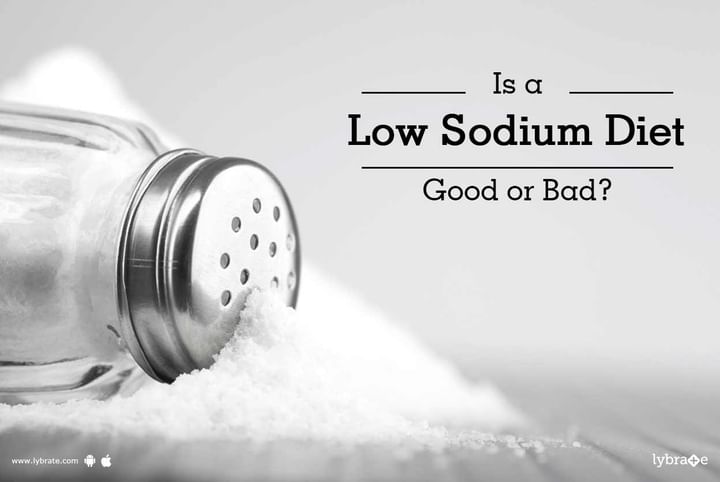Is a Low Sodium Diet Good or Bad?
Most dieticians are of the opinion that limiting your salt intake is essential, as an increased amount of salt in the system can damage your kidneys, heart and may increase your blood pressure, and chances of stroke. On the other hand, decreasing it beyond a point can prove to be detrimental to your health in various ways as well.
However, when relating to blood pressure, an increased salt intake can prove harmful to you only if you already have high blood pressure. In the case of normal levels of blood pressure, excess salt consumption will not prove to be too dangerous. Here are the ways in which low salt intake can prove to be detrimental for your health:
- Increases chances of heart diseases: Having a lower amount of salt in your diet - i.e. less than 2000 mg per day increases the risk of heart-related disorders, which include, but may not be limited to, strokes or heart attacks, exponentially.
- Decreases the body's level of sodium: Decreased levels of sodium in the body, often a direct byproduct of a reduced salt intake, can lead to a number of complications. Sodium is essential for maintaining electrolyte and mineral balance in the body. A decrease in sodium levels in the system, in extreme cases, can lead to hyponatremia, which can prove detrimental for the kidneys or liver.
Salt, which mainly contains two radicals - sodium and chloride ions, are essential for life. However, they can be obtained only through food as it is not manufactured intrinsically. There are several essential reasons for why salt intake in the optimal amounts is absolutely crucial in maintaining healthy body functioning:
- It is an essential component of blood plasma, as well as several other crucial body fluids such as extracellular fluid, lymphatic fluid, and amniotic fluid.
- It is important for maintenance and regulation of a proper level of blood pressure.
- Sodium, in the context of body physiology, is critical in maintaining a proper acid-base level in your system and in controlling the levels of your body fluid.
- The exchange of sodium and potassium ions, both obtained from salts, is also essential for muscle movement and in sending signals from the brain to the muscles. If you wish to discuss about any specific problem, you can consult a Dietitian/Nutritionist.



+1.svg)
